


Services

Recognition of Qualifications
The UCJ offers credential assessment services for persons with local and foreign qualifications from high school to university level, from countries around the world, in order to determine whether such qualifications satisfy the requirements for further study and or employment opportunities.

Proven Educational Quality

Recognition of Programmes

Public Education

Shaping & Pioneering Standards
Credential Assessment

How To Apply
Click here to see and download the guidelines for application and application form.

Approved Foreign Language Translators
Click here to get a list of our approved translators.

CARICOM Skills Certificate
To obtain the CARICOM Skills Certificate, apply through the Ministry of Labour and Social Security, accessing the CSME INFORMATION SHEET on their website.
The UCJ assesses for equivalency, qualifications obtained from institutions other than those specified in the CARICOM (Free Movement) Skilled Persons Act, 1997.
To obtain an equivalency statement to support applications for the CARICOM Skills Certificate, download the UCJ application form for assessment of credentials.
Click here to access the CSME Information Sheet on the MLSS work permit forms.

What is a Diploma Mill?
A diploma mill (or degree mill) is a dubious provider of education that offers certificates, diplomas, and degrees that are considered bogus and/or of questionable quality. Diplomas or degrees offered by “mills” do not meet the standards required for such qualifications. In many cases degrees can be bought for a stated sum of money, without attendance at classes. Click here for more info

Choosing Programmes Offered by Foreign Institutions
When choosing programmes offered by foreign institutions, the institution must be recognised/accredited in its country by a competent authority and the programme of study accredited/recognised. Click here for more info
Accreditation

What is Accreditation?
Accreditation is the stamp of approval of the recognized External Quality Assurance Agency (EQAA) that gives a programme or institution its credibility, recognition and acceptance locally and internationally. It is the more preferred quality assurance method for assuring and improving quality in higher education (education and training) in general.

The Value Of Accreditation
Accreditation brings significant value to institutions and enhances reputation. For students, it ensures quality education, facilitating admission to further studies and credit transfers, while offering the public assurance of external evaluation and continuous improvement in educational services.It fosters improvement by promoting self-evaluation, self-regulation, and accountability in line with educational standards.

Programme Accreditation
Programme accreditation evaluates the quality of specific programmes or courses within an institution, against established criteria. Click here to view the list of accredited programmes.

Institutional Accreditation
This signifies an institution meeting or surpassing educational quality standards. It involves a thorough evaluation of the institution's overall effectiveness, emphasising the strength of its Internal Quality Assurance (IQA) system and assessing the impact of its systems, policies, and practices on programme quality.

Accreditation of Short Courses
The UCJ accredits short courses offered by training institutions and training departments of organisations thereby providing formal recognition and acceptance within the higher education system.

UCJ-Approved Degrees
The UCJ Act, 1987 grants the Council authority to confer degrees on graduates of approved programmes, with UCJ-Approved degrees having equivalent recognition and acceptance as accredited programmes.

Accredited Institutions
Click here to view the List of Accredited Institutions and Candidates for Institutional Accreditation.

Overseas Accredited and Recognised Programmes
These include: Accredited Programmes Delivered in Jamaica by Overseas Institutions; Overseas Institutions with Programmes Recognised by the UCJ; and Overseas Institutions with Programmes Accredited by the UCJ.
Recognition of Transnational Education Qualifications

What is Recognition?
Recognition, as per the Lisbon Recognition Convention, is the formal acknowledgment by a competent authority of the value of foreign educational qualifications for access to education or employment. The UCJ considers that ‘Recognition’ of TNE programmes and qualifications should be subject to comparable quality assurance procedures as those applied to national institutions and programmes.

Recognition vs Accreditation
Recognition differs from Accreditation, but both are concerned with quality assurance. In Accreditation, the institutions offering the programmes are located in Jamaica. In the case of Recognition, although the certificates, diplomas and degrees are offered to Jamaican participants, there is no physical institutional presence or entity in Jamaica that can be accredited.

Recognition of Transnational Educational Qualifications
Transnational Education (TNE) – refers to all types of higher education study programmes or educational services (including distance education) in which the learners are located in a country different from the one where the awarding institution is based. The student does not move to study in other countries, they study in their home country, but the credentials are awarded in the name of the foreign institution (Andrejs Rauhvargers, 2000).

Transnational Education for Institutions
Transnational Education (TNE) programmes delivered in Jamaica by overseas institutions are required to undergo assessment against local standards for recognition. As Jamaica’s national external quality assurance agency, the UCJ holds TNE programmes to the same high standards as those delivered by national institutions. Click here to access the Guidelines for Recognition of Transnational Education Qualifications.

Transnational Education for Individuals
The processing of applications for recognition of qualifications obtained via distance learning/online is being done on a case by case basis, where the programme has not been granted recognition status in Jamaica.
Public Education

Empowering Minds, Transforming Futures
Reshaping the future through accessible, dynamic learning experiences. Where knowledge meets opportunity, and students are equipped for success in the ever-evolving landscape of the 21st century.
Standards Development

Standards Development Process
Standards for academic and occupational degree programmes have been written by the UCJ across various levels (Associate degree and onwards) for use by tertiary education institutions. These standards are developed in accordance with international benchmarks and provide important guidelines to the requirements for programme and institutional accreditation.

Categories of Standards
i) Discipline-Specific Standards: (Information Technology, Natural Sciences, Business & Management, Engineering, Teacher Education, Hospitality & Tourism, Psychology & Counselling)
ii) Generic Programme Standards: Associate Degree, Bachelors, Post-Graduate iii) Institutional Standards: Institutional Accreditation, Distance Education, Micro-Credentials

Our Standards Development Committees
Members of our standards committees are appointed by the Council of the UCJ and are thought leaders in their respective disciplines and areas of competency. In addition, standards committees’ research and review best practices and trends in the higher education sector globally and assist with identifying the needs of the Jamaican economy for such knowledge and skills.



